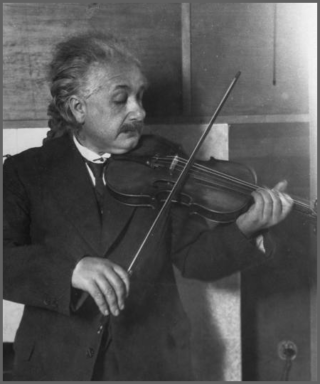“We cannot solve our problems with the same thinking we used when we created them.” – Einstein
Albert Einstein indeed possessed a love of science, but also for his cherished violin. It was said that the two would never travel apart. In fact he was once quoted as saying “Life without playing music is inconceivable for me”. I refer to this brilliant man in relation to a new study which has shown that practicing music actually improves the symmetry of your brain. Take a man like Einstein, a man with so much creative original thought and to what does he attribute his efforts? Music. According to Einstein he would “often think in music”. He said, “I live my daydreams in music. I see my life in terms of music.”
If we are to create brighter minds for tomorrow, more minds like Einstein, we should be pushing for the creative arts right now. Music is something that Einstein spoke of with great passion. I would postulate that it would be impossible for you to find even a single person that is not moved by a particular song or piece of music. It would seem that like storytelling, music is just something quintessential to the spirit of being human. Story and song can be found over thousands of years and thousands of cultures. Music has a unique result on the brain in relation to emotional responses. These effects can in turn actually re-wire our brains. Music stimulates some very primal spots of our mind. The centers of reward, planning, motivation, and of course emotion. A 2009 study established that extended music practice actually increased the parts of the brain relating to hearing and dexterity. The same study also provided the evidence of a “more fine-tuned connection to others.” The participants that had also studied music were actually able to better detect emotions in conversation via their tonality.
A more recent study goes into finer detail while observing a group of musicians in a fMRI. The group of musicians included keyboard players, cellists, violinists, bassoonists, and trombone players. It is surprising that the effect is instrument-specific,” says Marcus Pearce at Queen Mary, University of London. “It’s one thing to see differences in brain activity when they’re playing their instruments, but they’re just listening,” he says. “The perception of music is changed with musical training.” The instrument that stood out from the others was keyboard. The keyboard players were more likely to have synaptic symmetry than those playing stringed instruments.
Creativity feeds science and science feeds creativity. In order to be truly creative the mind needs to be exercised like any other muscle. Music is not only a way to stimulate that muscle, but cultivate a deeper connection with your fellow species. I will leave you with this final quote from Einstein, “The greatest scientists are artists as well.”
